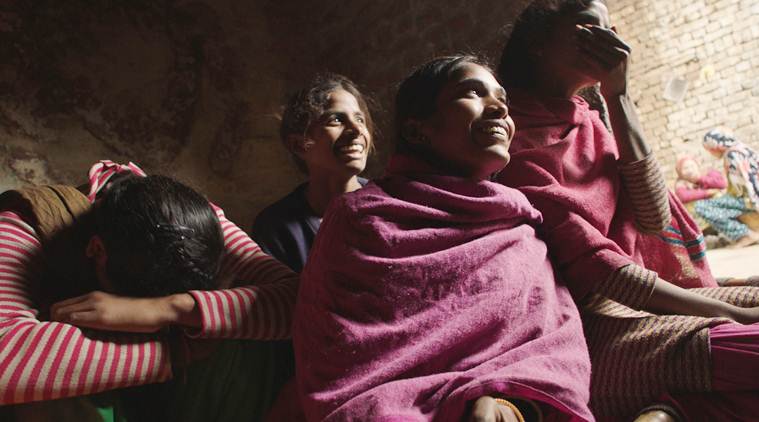
The Oscar-nominated short documentary Period. End of a Sentence. tells the story of women living in Hapur district and how their lives change dramatically after they start getting their periods. The title suggests that a period must only end a sentence and not one’s education, liberty and independence.
The 25-minute documentary spends some much-needed time in displaying the hesitation that young women feel while talking about menstruation. Many of them had to give up on schooling because going to school during periods was turning out to be impossible and all of this, with no access to pads. There are also those who have taken charge of their lives. Sneha, one of the women from Hapur, wants to work for Delhi Police. She is funding her training by earning wages at the local sanitary napkin plant. The installation of this plant has changed the lives of many women around here. It has taught them about hygiene and as an added bonus, women can even earn some money by working at this plant.
In the Indian context, this documentary is another attempt at making periods a taboo-free subject and the film does the job well as we can see the changes being made at the grass root level.
We also meet Arunachalam Muruganantham, the man who inspired the 2018 Akshay Kumar film, Padman. He dreams of making pads accessible to all women in the country at a pocket-friendly price and so far, he is well on his way.
We still live in cities where packets of sanitary napkins are wrapped in black bags so an ideal world, where women and men can both co-exist while acknowledging periods, is still miles away but projects like these are a step in the right direction. We are a society that struggles to fulfil our basics. Hygiene products slide down the list when food becomes a priority and to top it all, periods are also considered shameful for some reason. It’s a steep slope but there is no way to go around it than one village at a time.
The documentary and the sanitary pad machine has been crowdfunded by some students from Los Angeles and is directed by the Iranian-American director Rayka Zehtabchi. The crew in the film approaches the women and men with caution and care and end up being educators that are necessary for the required change.
Periods are nothing but a bodily function and they cannot end a woman’s freedom.